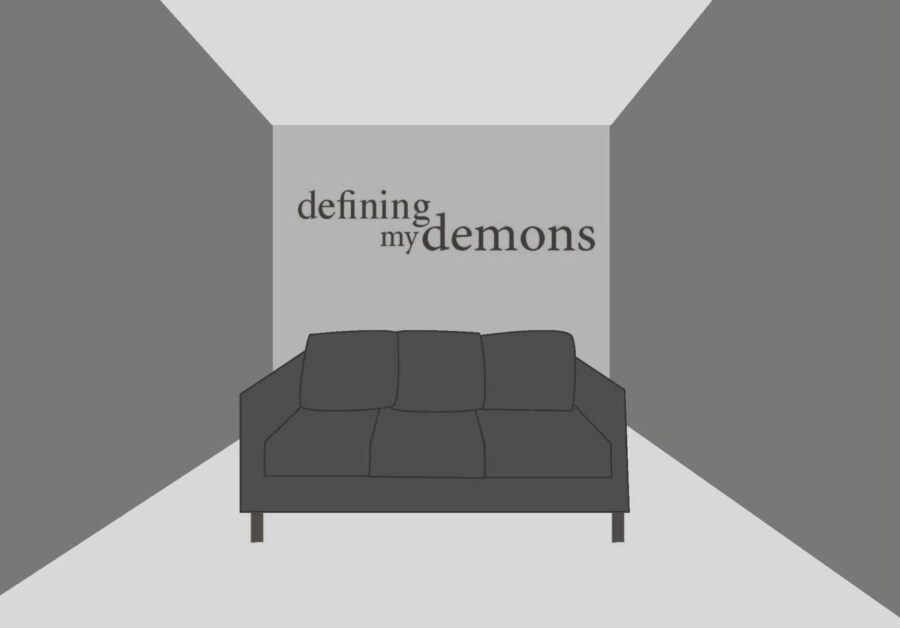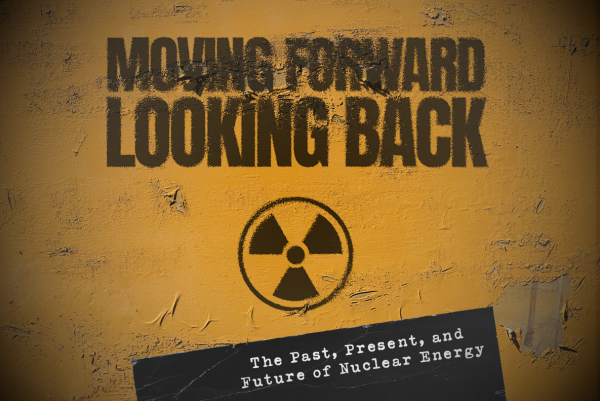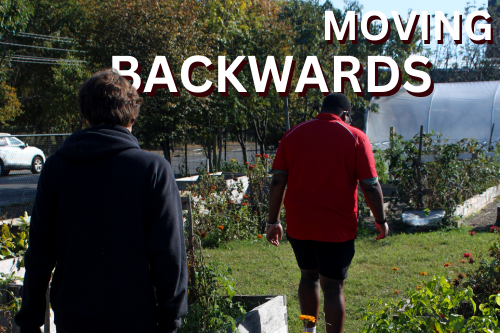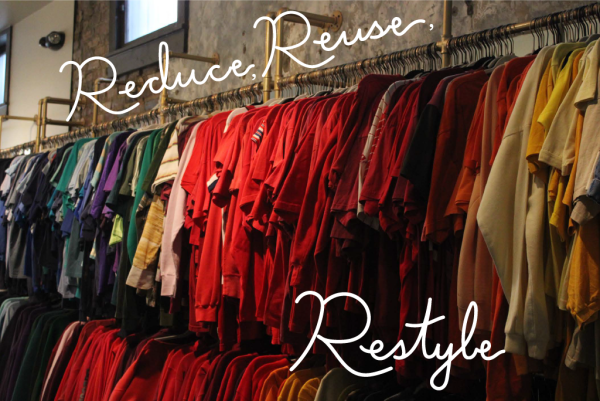Defining My Demons
In this installment of Liz Klein’s series she discusses anxiety, depression, and the limitations they attempt to place on our lives.
Disclaimer: This story very briefly mentions suicidal ideation and self harm.
The grey room
There’s a lonely room in my house I sometimes find myself going to, even when I really don’t want to be there. On the days I enter the room, the same thing always happens: I instantly feel trapped by its gloomy, gray walls. The small, dark gray couch smack dab in the middle of the room makes me feel even more closed-in. The almost bare room leaves only my mind to wander in its own depths. Even though this room is in my house, I never feel “at home” in it. My family avoids coming in here, too. We don’t use the room for much, but what else would we do with it?
There are other days I simply walk past the room, feeling guilty for neglecting it, but ignoring it and continuing on the best I can. Why have a room in the house that we’re never going to use? I feel like we should put it to use somehow, but nobody wants to go in there. It’s best when we just leave the door shut and try to forget it ever existed.
Then there are days I totally forget the room is even in my house, or I’m too distracted to care that it is. These are the days I’ve been really productive, had a good day eating, or had a good game; inevitably, though, every day can’t be like that.
On the days I do go into the room, I get settled on the couch and end up staying there for extensive amounts of time. It’s hard to find the motivation to leave once I’m there.
Here’s the thing, though. The barren room I’ve been illustrating isn’t a real place. This metaphorical room is where my head goes every time I begin to fall into the trap of anxiety and depression. It feels weird to say that, because I don’t feel like I’m depressed. I know I have some more obvious anxieties and sure, I have bad days where I overthink, but isn’t depression a bit of a stretch?
The reality of the room
Depression is a broad term, with a lot of possible symptoms, not just the stereotype of suicidal ideation, self harm, and the more extreme cases. Some possible symptoms under the umbrella of depression include anxiety, guilt, sadness, losing interest in things, less energy, hopelessness, trouble concentrating, changes in appetite, aches and pains, and even changes in the way you sleep. I know sometimes I have these symptoms but I don’t connect the dots to depression because I am ignorant to the fact that depression can actually affect real human beings, and it’s not just something I hear about. I think part of the reason I have this ignorance is because it’s hard for me to believe that so many people struggle with depression when almost everyone seems so happy on the outside. People probably think the same thing about me though.
When I get depressed, I sink into this empty space of darkness –– this barren, grey space –– with no room for anything but overthinking. In reality, I’m in my bed, or another place that tends to prompt my anxiety. A place where I feel secluded, alone, trapped, and have nothing to do except think. But if I were to picture where my brain goes, it would look like this room.
One of the trickiest things about the room is that I’m the only one who knows I’m there. My mind wanders and walks itself into the room, leaving me alone in my thoughts. No matter how much I want to leave, I can’t just get up and walk out of the room; I can’t just set aside my anxiety and depression. I know that if I ever want to get out of that dark room, I have to ask for help. But it’s not that easy. The walls are soundproof and I can’t shout for help even if I wanted to. I get intimidated and my anxiety tells me I shouldn’t speak up. I shouldn’t bother others; they’re busy with their own problems and I just need to be strong and get up and leave.
But anxiety is illogical. It places “what ifs” inside my head that don’t make sense, and I’m stuck trying to rationalize them. Part of the reason it’s hard for me to speak up about my anxiety is because it won’t make any sense. Anxiety is personal –– only I know what’s going on in my head. What if I’m told to just get over it? Or that I’m just overreacting?
If I’ve learned one thing from talking to friends, therapists, trusted adults, and even now, publishing the intimate and scary details of what I go through, it’s that I’m so far from being alone. People want to help me. There will always be some people who won’t understand or relate to my struggles even if I try to explain them and others may be too shy to share what they’re going through, or maybe they haven’t come to terms with their struggles yet. I have yet to meet someone who didn’t empathize or try to help me, though, and I share my stories with a lot of people. Still, it is always reassuring to remind myself that everyone in this world has problems, and knowing someone else shares your problems helps make others feel less alone too.
When the walls close in
One early, brisk morning, long before a pandemic was even imaginable, my mom pulled into the duPont Manual parking lot, as we did every school morning. It was freshman year, arguably the most intimidating year of high school. It was hard for me to eat in the morning, partly due to my developing eating disorder, but also the anxiety of simply walking in the school building. When I feel anxious, school is a big, boring and mean building where I am trapped and unable to leave until 2:20 p.m. My mind proposes extreme, mentally distressing scenarios in my head and I think about how if I were to have an anxiety attack, panic attack, or mental breakdown I wouldn’t be able to escape. I think about how there is a strict routine to the school day and teachers account for where you are and how long you’re there. Sure, there are counselors, but it’s still scary and mentally draining to explain to someone whom I don’t know very well my intensely personal, very confusing, and seemingly illogical problems that my anxious mind provokes.
On this particular morning I struggled to eat, as I did every morning. I sat quietly in the passenger seat fidgeting and trying to muster up the courage to enter the school with some amount of confidence. I was really trying, and I wanted to feel normal and okay so bad, but I was stuck in the gray room. As I approached the front of the line and my heart beat faster and faster. I wasn’t ready to go in but I had no choice. I felt paralyzed but forced myself to go through the motions of grabbing my bag and getting out of the car. As I began to step forward, my mom’s car moved in alignment with me, we moved forward slowly together. I focused on putting one foot in front of the other as much as I could. I got to a third step before I turned to my moms car and motioned for her to stop. I got back in the car, panicked and nauseous. My heart beat rapidly and I felt like I was going to puke. I felt like I could cry but I couldn’t move or speak. My mom could tell I wasn’t okay, and she comforted me the best she could then drove me home.
I tell you this story because I want you to know that anxiety is not glamorous even though the pretty Instagram graphics with positive messages are. I want you to know that it happens to people you know and in places you visit, even though you don’t usually witness it.
Breaking through the walls
So, when I’m trapped in the room, how exactly do I get out? First, once I’ve already convinced myself that my problems are irrational, I have to correct it with some positive self talk. I usually tell myself roughly the same thing, but every person may have a different encouragement that helps them. I remind myself that I’m a reasonable human being, and if I’m having this problem, someone else has to understand it too. I remind myself that every person on this earth has experienced anxiety before, even if they don’t admit it or call it by name.
I’ve worked to surround myself with a like-minded community that has empathy and wants to help me. I pretty much always have a safe person or at least a semi comfortable person around me. And if not, I have my phone, where I know my most safe people are just a few clicks away.
Anxiety and depression tend to have a cycle. First, the thing happens (or doesn’t happen) that prompts the negative feeling. Then, that one negative thought blossoms into five more, then ten more, and so on. It’s extremely easy to get lost deep in the maze. For many people, next comes acceptance. Acceptance is understanding where your mind has traveled. It’s acknowledging that you have to work to get back out of it, to open the door and get out of the room. Next is your game plan. What are you going to say to yourself? Who are you going to talk to or call? This might not be your process, but it’s a rough layout of the process I know best.
As a person who is very experienced with anxiety, depression, not wanting to get out of bed for days, changes in appetite, stress, and finding it hard to speak up, I want you to know one very important thing. You are never, ever, ever alone. Something that personally helps me so much is reminding myself that the world is bigger than I could ever imagine. Statistics aren’t just big numbers. Every single person in that big number has a life, a story, and a shared experience. They’ve all been in the gray room. Just like you and me.
The gray room sucks, but it’s also where growth and personal development come from. I’m not here to romanticize mental illness or personal struggles in general, but I hope to give you comfort in the fact that the walls inside your gray room are only as soundproof as you let them be. When you feel alone I hope you find comfort in the fact that anxiety and depression are a shared experience and there is always someone who wants to help you.
Donations are collected through The Publishers, duPont Manual High School's booster club for J&C. On The Record relies completely on sponsorships, advertisements, and donations to produce and distribute each issue. Please consider donating to our cause, and helping the student journalists of OTR amplify youth voices for years to come.









Becky Wolf • Nov 13, 2021 at 9:10 am
Liz, i love this piece. You are a strong writer & a courageous young woman. Keep sharing!
Greg Kuhn • Aug 10, 2021 at 8:08 pm
Liz, this piece is so effective on multiple levels. Thank you for writing it!
Your metaphor is relatable, your explanations insightful, and your personal reveals inspiring.
Excited to see what’s next!
Lottie Williams • Jun 12, 2021 at 9:44 am
Great read Elizabeth. I really do need to empathize more with my love ones and friends who deal with anxieties and depression. You see it’s very hard for me to even accept it because of the way I was raised and where I come from. It’s not that I don’t care. It’s just, I was taught that these symptoms are a signs of weakness instead of anxieties and depression. I know now that it isn’t that at all. God makes us all different and we will all fall short in different ways. Having the tools to recognize it before it spirals out of control, I believe will eventually help to combat all of the negative feelings.
Thank you so much for sharing your heart. I am beyond proud of you. I know it couldn’t have been easy writing this. Sending hugs, love, prayer, and understanding.
Lottie 🌸